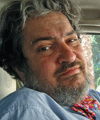
"Search your feelings, Lord Vader. You will know it to be true.
Our earliest experiences in anesthesia are marked by the intense onslaught of feelings. We do not know how to focus our attention; we don’t have the experience to parse what is relevant and what is extraneous. So we suffer from extreme anxiety, sensory overload, and become easily exhausted. Soon we become comfortable, and our anesthetic thinking dwells in the realm of information; physiology, pharmacology, do’s and don’ts.
If we are to progress to excellence, we need eventually to contend with our feelings about the craft and our feelings within the craft.
In past years, I have written regarding emotions within anesthesia. Most importantly, this includes establishing empathy for each patient so that the outcome matters more than just our own liability or reputation. When we are doing 6 cases a day or more, or spending long hours with inert patients, having that personal connection enhances vigilance and enhances our sense of meaning or purpose. This is accomplished as part of the pre-op interview.
Anxiety is an important component of anesthesia and must be cognitively addressed and titrated. Anesthesia is, by its nature, a tense undertaking. Anesthesiologists or anesthetists who don’t have that sense of tension get in trouble more often, or so I have observed over three decades. On the other hand, excessive tension leads to fatigue, unhappiness, and burnout (whatever that is.) We tend to become blind to the tension inherent in our jobs; I call this emotional adaptation, and liken it to sensory adaptation; that’s the term-of-art for the phenomenon that causes you to not smell the roasting turkey on thanksgiving after a few moments.
Emotional adaptation contains hidden dangers. We often manifest our clinical judgments through feelings. If you asked me to do a pediatric heart right now, I would be pretty anxious and rightly so, since I haven’t done one in over 20 years, and I have no business doing so now. In my experience, after impulse control issues (themselves frequently a manifestation of anxiety) the most common way in which an anesthesiologist gets into trouble is by getting in over their head, typically because they aren’t acknowledging their anxiety, they are over-adapted to tension or are just too fatigued. Fatigue manifests as judgment errors, and those errors are frequently insidious. Fatigue causes a practitioner to not put in a better IV for an arm tucked patient, or to not check the position before the drape goes on. As well, we are conditioned to downplay our tension as part of our training and culture. I certainly was never encouraged to express my feelings in training; just the opposite. Admitting tension or anxiety was (and is) a sign of weakness...
Our nature as anesthesiologists is to intellectualize. It is our legacy and our pride, and has served us well over the centuries in our battles with surgeons and with the struggle to relieve the suffering of our patients. Medicine has greatly benefitted as a result. But our careers and practices would be better served if we allowed ourselves and taught our trainees to legitimately engage feelings in the clinical environment.
 Mitch Keamy is an anesthesiologist in Las Vegas Nevada
Mitch Keamy is an anesthesiologist in Las Vegas Nevada
 Andy Kofke is a Professor of Neuro-anesthesiology and Critical Care at the University of Pennslvania
Andy Kofke is a Professor of Neuro-anesthesiology and Critical Care at the University of Pennslvania
 Mike O'Connor is Professor of Anesthesiology and Critical Care at the University of Chicago
Mike O'Connor is Professor of Anesthesiology and Critical Care at the University of Chicago
 Rob Dean is a cardiac anesthesiologist in Grand Rapids Michigan, with extensive experience in O.R. administration.
Rob Dean is a cardiac anesthesiologist in Grand Rapids Michigan, with extensive experience in O.R. administration.